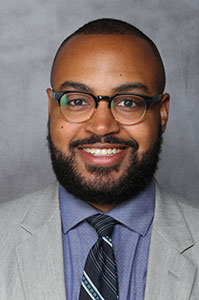
Mary E. Graham, Ph.D.
Falk College, Syracuse University
Mary E. Graham is Professor of Sport Management in the David B. Falk College of Sport and Human Dynamics at Syracuse University. She received her Ph.D. from the School of Industrial Relations at Cornell University, after earning her C.P.A. and working as a legislative aide in the U.S. House of Representatives. Dr. Graham’s current research interests include race and gender in organizations, and human resource management in manufacturing supply chains.

Bhavneet Walia, Ph.D.
Falk College, Syracuse University
Bhavneet Walia is Assistant Professor of Public Health in the David B. Falk College of Sport and Human Dynamics at Syracuse University. She received her Ph.D. in Economics from Kansas State University with specializations in labor and health care econometrics. In her research, Dr. Walia uses econometric modeling to evaluate and understand policies related to the efficiency and effectiveness of health and labor markets. Her research also relates to mortality and mental wellness among populations that feature unique and, in some respects, elevated risk exposures.

Chris Robinson, J.D.
Chris Robinson is an attorney licensed to practice law in the District of Columbia. He earned his J.D. and sports law certificate from Tulane Law School, where he coached their alternative dispute resolution team. He began work on this study as a sport management undergraduate student at Syracuse University. He most recently spent two seasons working in the Brooklyn Nets front office, specializing in salary cap management, and collective bargaining agreement compliance.
Acknowledgements:
The authors would like to express their gratitude to Myrtle Bell, Alison Konrad, Shane Sanders, and Rick Welsh, who provided very helpful feedback on earlier drafts of the paper. They also thank Timothy Bryant and Justin Mattingly for their capable research assistance. The first two authors accessed the data on employer EEO-1 filings as unpaid researchers on temporary assignment with EEOC through an Intergovernmental Personnel Act (IPA) agreement. As part of this agreement, they entered into a confidentiality agreement which prohibits disclosure of any individual team organization data. The authors thank Ron Edwards, Patrick Davis, and Moriah Willow of the U.S. Equal Employment Opportunity Commission for assistance with this data.
